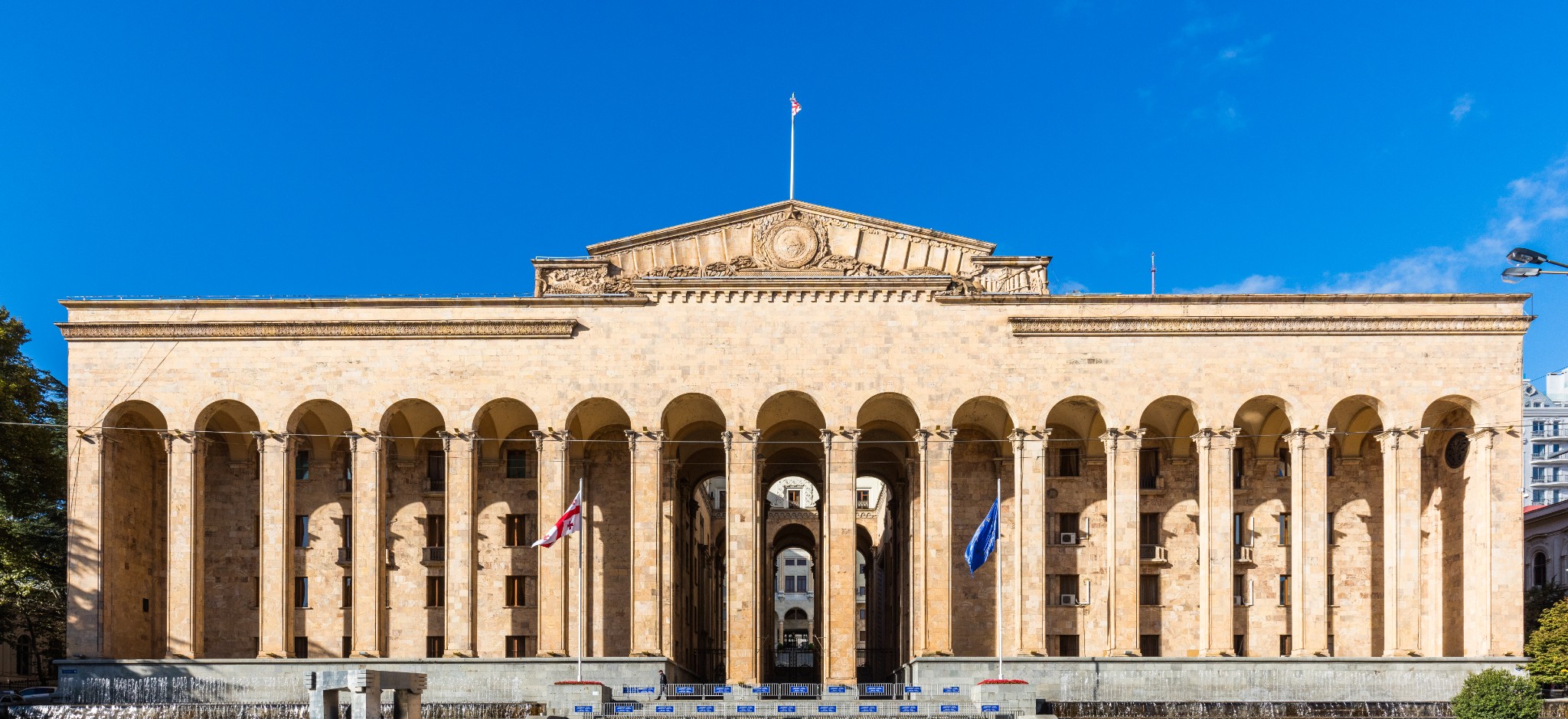 By Diego Delso, CC BY-SA 4.0, https://commons.wikimedia.org/w/index.php?curid=52295909
By Diego Delso, CC BY-SA 4.0, https://commons.wikimedia.org/w/index.php?curid=52295909
Georgia’s New “Foreign Agent” Bill Moves Towards Authoritarianism
Last Wednesday, the Parliament of Georgia held an initial reading of a draft bill termed the “foreign agent” bill. The draft passed this first of three hurdles to becoming law with 83 out of 150 members of parliament supporting it. The bill was met with significant protests last week as upwards of 10,000 people stood in front of their Capitol building to rally against its passage.
This is not the first time the Georgian parliament has tried to pass a law like this; just last year the Parliament brought up a similar bill, but after a week of intense protests removed it. The bill aimed to increase transparency of foreign influence on Georgian organizations. It requires organizations receiving more than 20 percent of their funding from abroad to register as foreign agents. However, critics are calling it the “Russian law” because it is very similar to a law Russian President Vladimir Putin has weaponized to crack down on dissenters. Opponents also cite the increasing closeness of the ruling Georgian Dream party with the Kremlin and believe the founder, Bidzina Ivanishvili, is leading Georgian Dream towards Moscow because he made his billions there in the 1990s.
This second iteration of the bill comes just a few months after Georgia was given candidate status for membership to the EU. A December poll by the National Democratic Institute (NDI) and Caucasus Research Resource Center (CRRC) Georgia showed that almost 80 percent of Georgians favor EU membership. Many Georgians are motivated to join because of significant economic difficulties causing high emigration.
The economic problems were made worse by the influx of approximately 100,000 Russians in the first year after the Ukraine invasion. These Russian immigrants are often much wealthier than the average Georgian, driving up prices for food and housing as they increase demand and can afford to pay extra for access. Georgians are also frustrated by many Russians’ political apathy, which they see as an ignorant and privileged position. This has added to an already Russophobic environment in Georgia as there is still much anger from the 2008 war. Though the war lasted only a few days, Russia was able to annex about 20 percent of Georgian territory and continues to push the demarcation line further into the country.
This brief war is largely seen as having given Putin the greenlight for his invasions of Ukraine. The lackluster response from Western nations to his aggression was interpreted as a tacit acceptance of Putin’s expansion. After limited criticism, Western leaders called for a cease-fire and brokered one that favored Moscow. Six years later, Putin tested Western response again in his occupation of Crimea and parts of the Donbas region. With a still limited response, Putin believed he had the greenlight to invade Ukraine.
Now, critics of the ruling party in Georgia believe that the Georgian Dream party is aligning closer with Russia against the will of the people, who desire European integration. The Georgian Dream party was originally founded in 2012 as a coalition to counter the corruption of President Mikheil Saakashvili. When the party won over Saakashvili’s United National Movement (UNM) party in 2012, Ivanishvili promised Euro-Atlantic integration. However, once in power, they consolidated through patronage, election fraud, and the prosecution of opponents. Facing a fragmented opposition meant they only had to appear to be working towards Western integration, while actually strengthening ties with Russia.
Days before the “foreign agents” bill was presented, the government also presented legislation which would place tough restrictions on the LGBT+ community in another law that mirrors Russian ones. The anti-LGBT bill was met with outrage from human rights groups and EU officials, who said it was against EU values and standards.
The combination of the two bills leads many to question their appearance in pursuing integration. The same NDI and CRRC Georgia poll showed that 53 percent of Georgians believe parliament does not take the people’s views into account. Opponents suggest that the Georgian Dream party’s power is threatened by EU regulations and a more limited relationship with Moscow.
The “foreign agents” bill also comes ahead of Georgian elections in October. Some opponents fear that should the bill become law it will be used as in Russia to suppress dissent and win Georgian Dream a fifth term as majority in parliament.
Should the Georgian Dream party continue down this path of authoritarianism, it could become like Belarus: another Russian puppet state that supports Putin and his expansionist agenda in Eastern Europe. It is clear from the poll and the protests that the Georgian people are not in favor of this Kremlin-leaning agenda. It is important that Russia not gain another ally in the region and allow Putin to continue his quest to restore Soviet territory to Russia.





